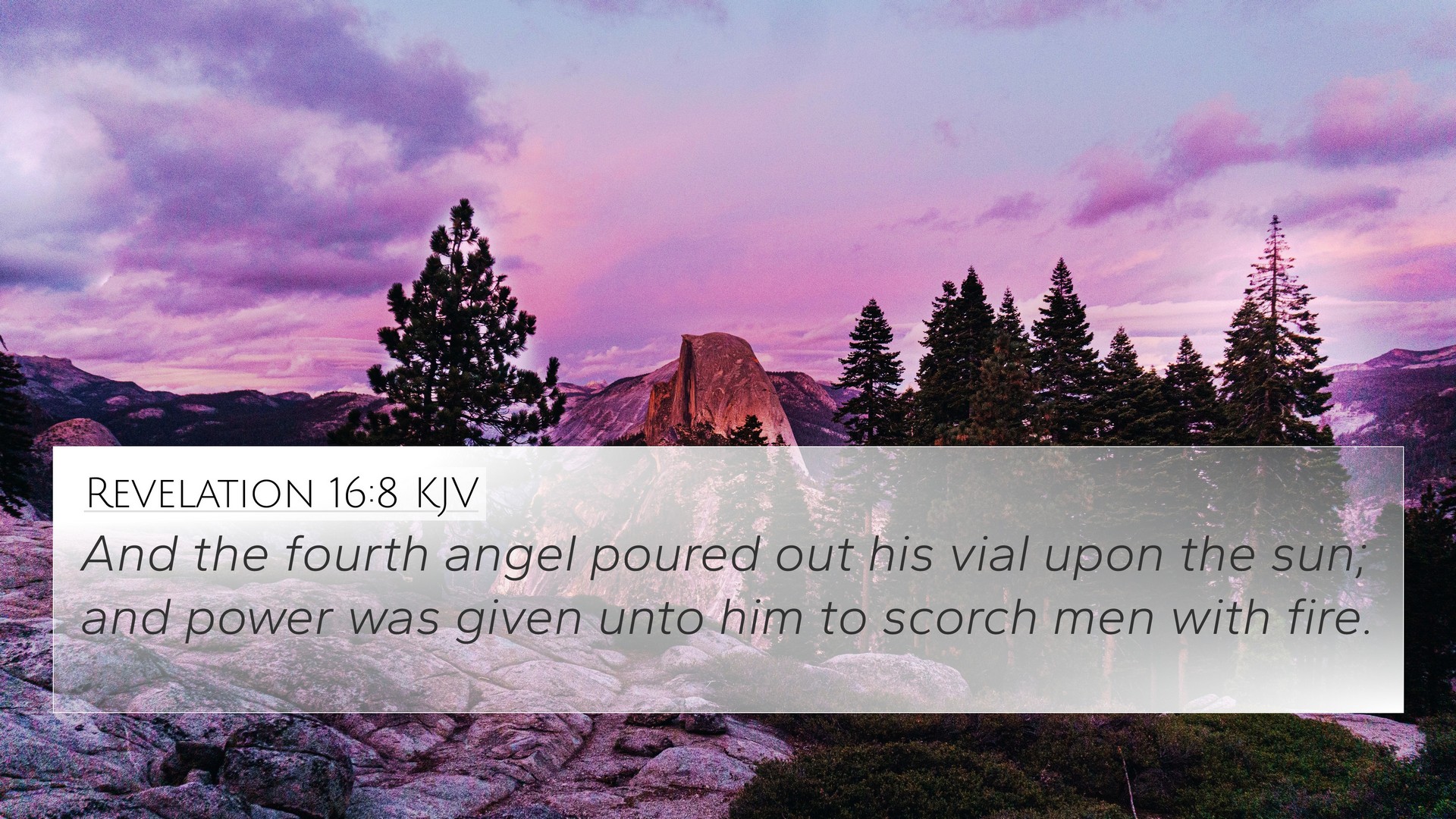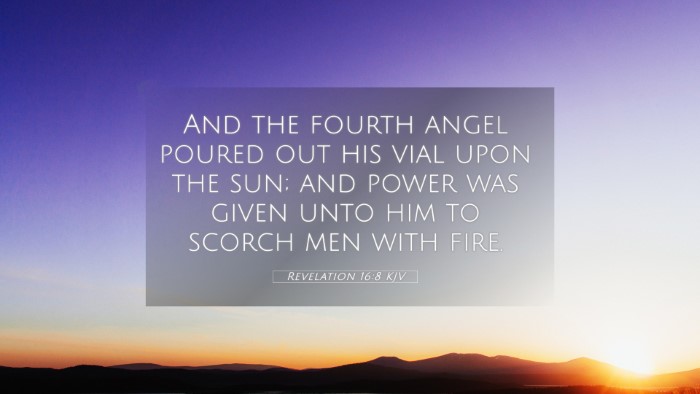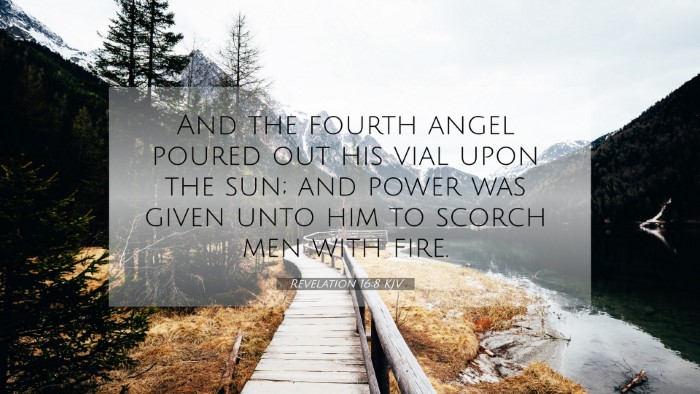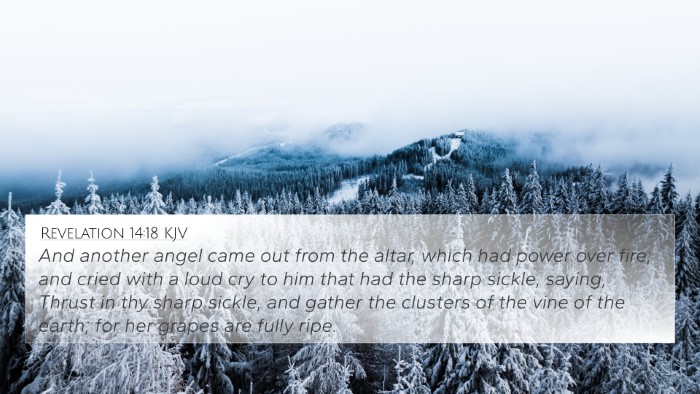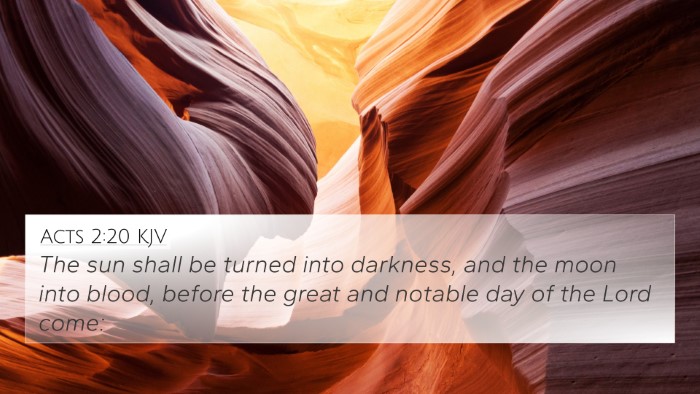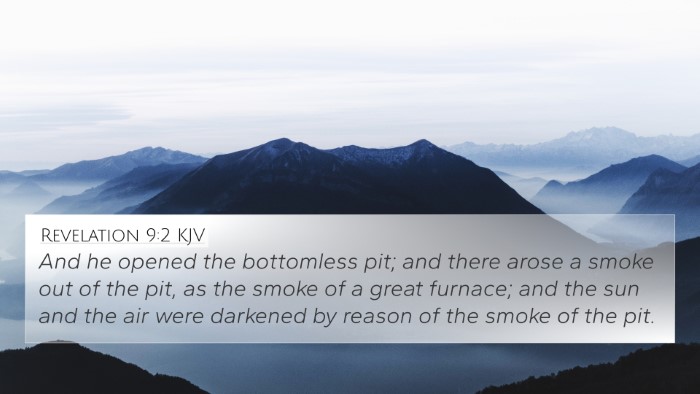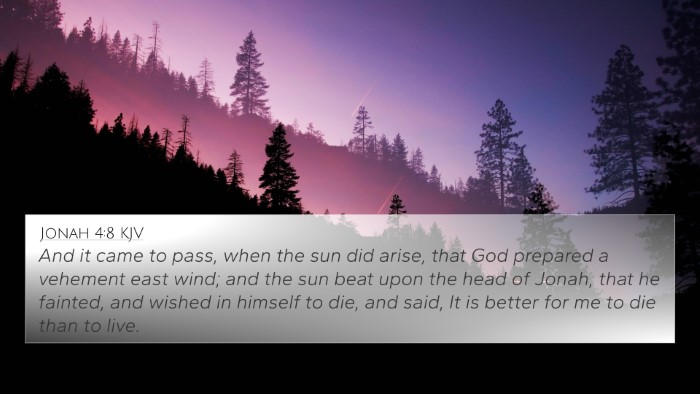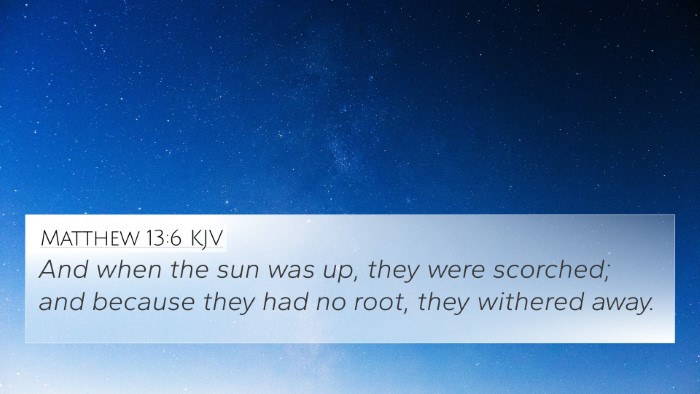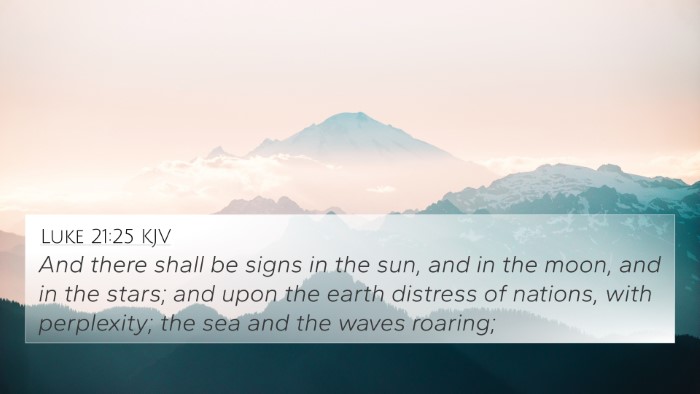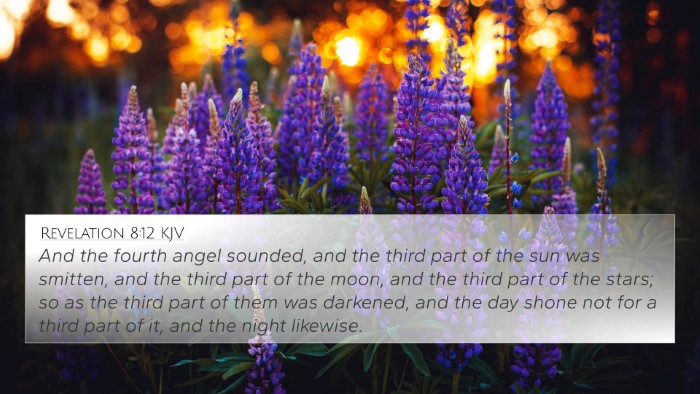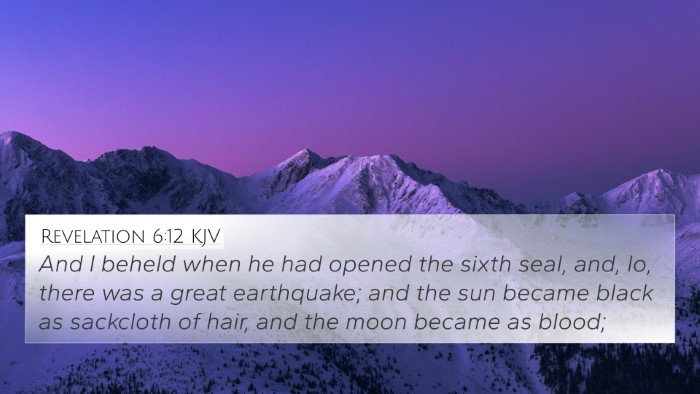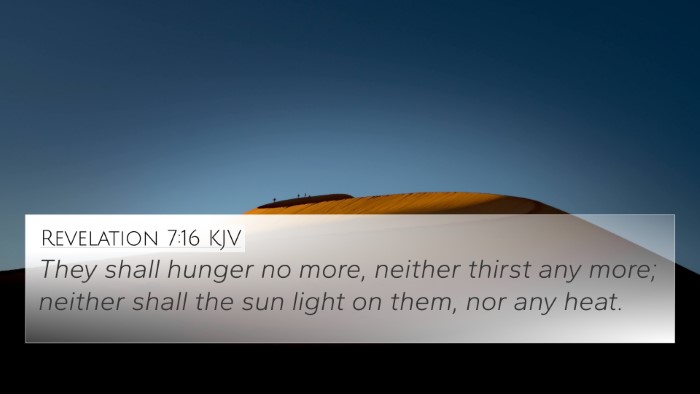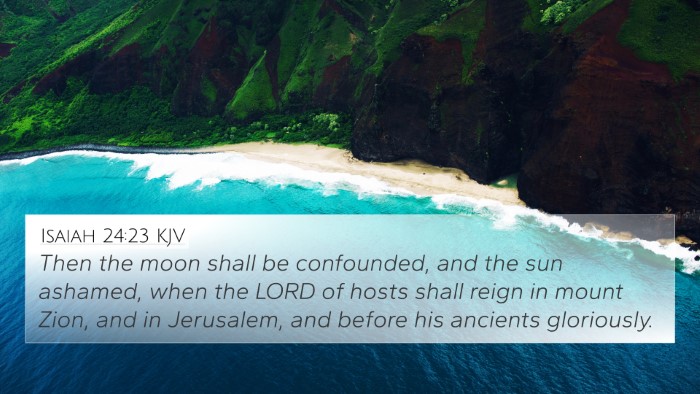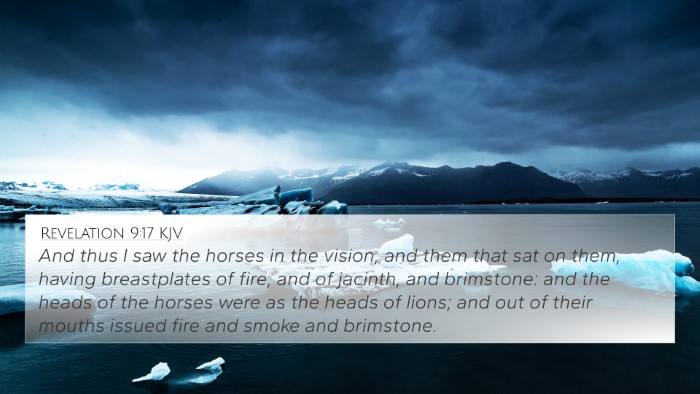Understanding Revelation 16:8
Revelation 16:8 states, "The fourth angel poured out his bowl on the sun, and it was given to him to scorch men with fire." This verse comes from the apocalyptic vision of John and indicates a time of judgment from God upon the earth.
Contextual Significance
This passage is part of the seven bowl judgments, which depict a culmination of divine wrath against a world that has rejected God. The pouring out of the bowl signifies a demonstration of God's sovereignty and the consequences of human rebellion.
Commentary Insights
Various public domain commentaries provide key insights into this verse:
- Matthew Henry: He emphasizes that the judgment represented by the scorching heat is a direct consequence of people's refusal to worship God, illustrating God's holy indignation towards unrepentant sinfulness.
- Albert Barnes: He comments on the symbolism of the sun and its scorching, suggesting that it represents not only the intensity of judgment but also a reflection of the greater spiritual darkness consuming humanity during these final days.
- Adam Clarke: Clarke offers a theological interpretation, indicating that this judgment serves as a wake-up call for humanity, urging repentance before the ultimate fulfillment of God's wrath.
Bible Verse Cross-References
To gain a deeper understanding of Revelation 16:8, it is beneficial to consider the following cross-references:
- Exodus 9:22-23: The plague of hail demonstrates God's power over nature and His intent to judge.
- Matthew 24:29: References a cosmic upheaval at the end times, akin to the chaos described in Revelation.
- 2 Thessalonians 1:7-9: Describes the coming of the Lord and the retribution against those who do not know God.
- Isaiah 30:26: Foretells a day when the sun will shine with sevenfold brightness, hinting at the contrasting judgments in Revelation.
- Lamentations 4:9: Illustrates suffering when people are not in right relation with God, paralleling the scorching judgments in Revelation.
- Malachi 4:1: Talks about the great day of the Lord when the wicked will be burned up like stubble.
- Revelation 16:10: Continuation of the bowl judgments, enforcing the severity of God's judgment on the earth.
Thematic Bible Verse Connections
The themes of divine judgment and human accountability resonate throughout Scripture:
- The Old Testament frequently discusses God's wrath against unrepentant sinners.
- The New Testament emphasizes the grace available through Christ, contrasting with judgments described in Revelation.
- This verse serves as a warning about the consequences of living in opposition to God's ways.
Comparative Bible Verse Analysis
By analyzing connections between Revelation 16:8 and verses that address themes of judgment, one can see the continuity of God's message:
- Jeremiah 10:10: The Lord is the true God; He is a living God and an everlasting King, referring to His authority over all judgment.
- Romans 1:18: The wrath of God is revealed from heaven against all ungodliness, forming a foundation for understanding end-times judgments.
How to Use Bible Cross-References
For those engaging in bible cross-reference studies, consider the following:
- Utilize a bible concordance to find thematic links across various books.
- Leverage cross-reference bible study methods for deeper analysis of verse themes.
- Employ a bible reference resource for finding additional connections that enrich your understanding of scripture.
Conclusion
Revelation 16:8 serves as a powerful reminder of God's justice and the dire consequences of a life separated from Him. Through comprehensive scriptural cross-referencing and thematic connections, believers can gain a fuller understanding of God’s character and actions throughout the biblical narrative.
